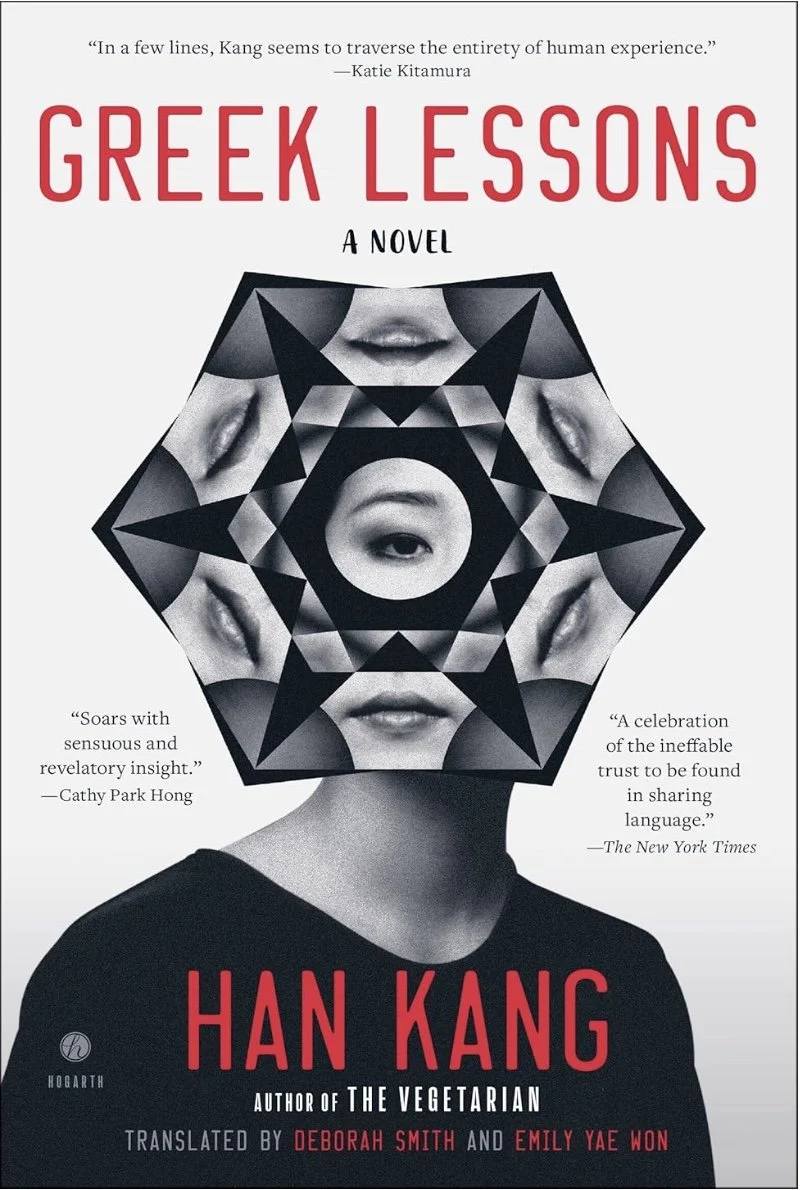Greek Lessons
by Han Kang
A Poetic Meditation on Silence, Identity, and Language
Affiliate Disclaimer - There are affiliate links on this page, which means I may receive payment at no charge to you for purchases made through any links on this page.
Han Kang’s Greek Lessons is a novel of exquisite restraint — a quiet book that pulses with vulnerability, precision, and a kind of luminous grief. While her earlier works (The Vegetarian, Human Acts) confront violence and silence through rupture, Greek Lessons does so through stillness. It’s a novel not of scream, but of whisper and that whisper lingers.
Told through the shifting perspectives of a mute Korean woman and her Greek language teacher, the novel explores what it means to lose and rebuild language, not just as a tool of speech, but as a vessel for identity, connection, and memory. Han Kang’s prose, beautifully translated by Deborah Smith and Emily Yae Won, reads like poetry: fragmented, lyrical, and emotionally distilled.
There’s a delicacy in the way the characters move through trauma, shaped by personal loss, societal expectations, and cultural dislocation. The woman’s silence is not framed as weakness or pathology, but as a form of resistance and transformation. The teacher, nearly blind and emotionally tethered to his own past, becomes her mirror and her guide. Their relationship is tender, understated, and deeply resonant.
For readers who have studied language, the novel’s structural and thematic complexity will be especially poignant. Greek becomes a kind of third space, a neutral terrain for emotional rebirth. And Korean identity is explored not through nationalism, but through the haunting ache of unspoken memory.
Han Kang doesn’t write plot-driven novels, she writes emotional architectures. And Greek Lessons might be her most elegant one yet.
Trigger Warnings: Themes of grief, disability, and emotional trauma
💭 My Take
Greek Lessons resonated deeply with me, a solid 5-star read. As someone with a language degree, I was completely absorbed by how skillfully Han Kang layers linguistic nuance, cultural memory, and emotional intimacy. The writing is exquisite. The structure is poetic. And the entire experience of reading this book felt like standing in a room full of light and echoes. I could have started it over the moment I finished.
Where to Read It:
The Vegetarian is available on Amazon — Come along to read other amazing books with the My Asian Era book club on Fable.
📚 Other Books by Han Kang
If Greek Lessons moved you, consider reading the rest of Han Kang’s translated works, each one a distinctive meditation on grief, memory, and human dignity:
The Vegetarian — A surreal exploration of bodily autonomy and mental illness, told through the eyes of those who misunderstand.
Human Acts — A searing account of the 1980 Gwangju Uprising, blending history with collective grief.
The White Book — A fragmented, poetic elegy of loss and rebirth, anchored in the color white.
We Do Not Part — Her most recent novel (2025), centering on enduring friendship and the long shadows of historical trauma from the Jeju Uprising.

